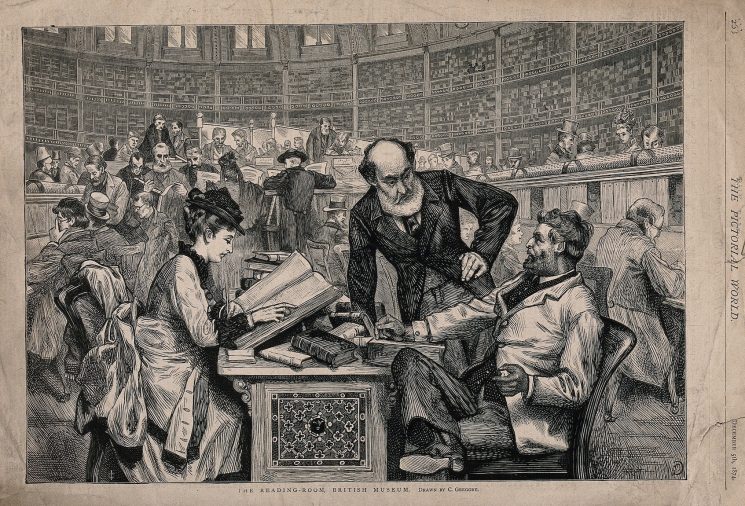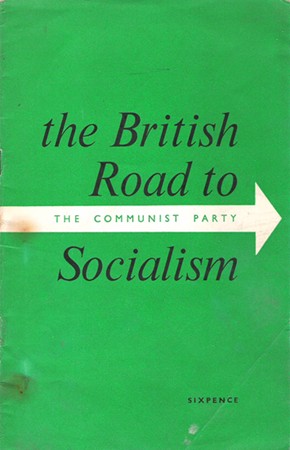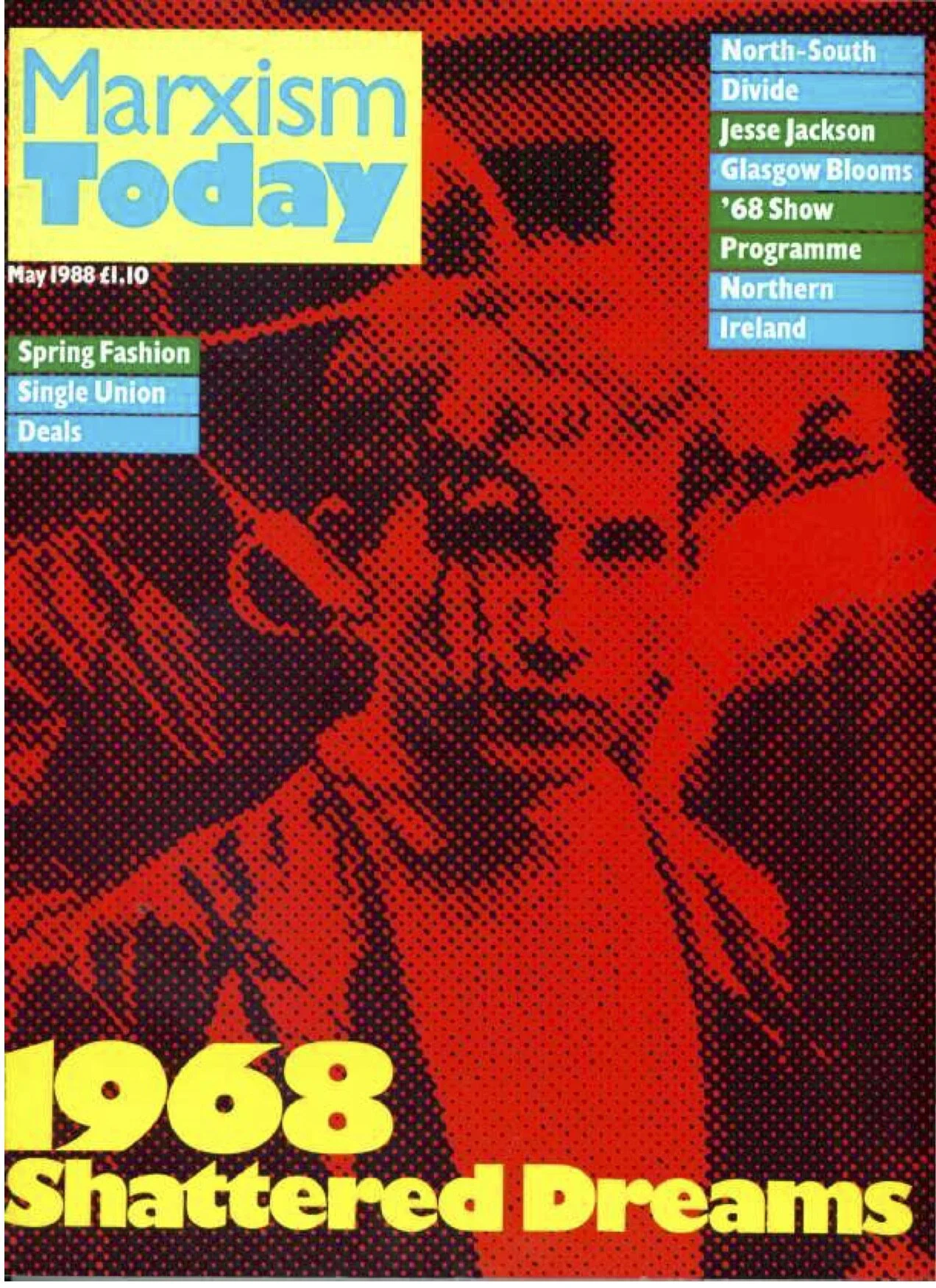A Brief History of the British Left
In 1848, a little-known German writer called Karl Marx wrote The Communist Manifesto, a text outlining his beliefs about class, capitalism, and the future emergence of a classless, communist society. Marx and his ideas quickly came to dominate left-wing politics in Britain and abroad; by 1900, an alliance of Marxist, socialist and trade unionist groups came together to form the Labour Representation Committee, soon to be renamed the Labour Party.

Whilst most groups fell in line behind the Labour Party, some did not, such as the Socialist Party of Great Britain, which still exists to this day, and the Social Democratic Federation, which eventually merged into the British Socialist Party in 1911.
The biggest change took place during the First World War and Russian Revolution of 1917. The War saw the Labour Party, which supported the conflict, drift to the right somewhat, whilst the Russian Revolution provided an example for socialists in the form of the Bolshevik Party and Vladimir Lenin.
Lenin argued in favour of a small but highly organised “vanguard party” that would lead and guide the workers in revolution. British socialists realised this would never be the Labour Party, so they came together to form the Communist Party of Great Britain in 1920. The party was eager to capitalise on the 1926 General Strike, seeing it as possible revolutionary spark; but the Trade Union Council and Labour Party called it off before anything of the sort could begin.
The CPGB was closely tied to the Soviets; this was important after the death of Lenin, when Joseph Stalin consolidated control of the Bolshevik Party and exiled Leon Trotsky. Stalinists argued Trotsky was an anti-revolutionary dissident, whilst Trotskyists attacked Stalin’s regime as bureaucratic and authoritarian.

This led, in the 1930s, to a mass exodus of Trotskyists from the CPGB. They eventually split off to form the Revolutionary Communist Party in 1944. The RCP existed for five years, when it splintered into three – the successors of which exist to this day.
Nevertheless, the CPGB reached its peak of membership in the 1940s and 50s. Their program was based on a document called The British Road To Socialism, which argued that because of Britain's well developed parlimentary system, the party should, at least at first, work within that system to achieve eventual revolution
The party was hit by a devastating blow in 1956 when Nikita Khruschev, new Soviet leader, began a policy of reforms to remove what he saw as the authoritarian excesses of the Stalinist era. To make it worse, he soon after authorised the invasion of Hungary, as Andy (a member of the CPGB) explains below.
Andy Croft:
This angered just about everyone. The anti-revisionists, who saw Stalin as a revolutionary icon, hated Khruschev’s reforms. Many reformists, meanwhile, saw the invasion as proof that the reforms were not as radical as they wanted. The CPGB continued to follow the Soviet line, despite haemorrhaging members.
The anti-revisionists, for the most part, merged with another group that was on the rise: the Maoists. These followed the teachings of Mao Zedong and the Chinese Communist Party, who also believed the Soviet Union had gone down a counter-revolutionary path. This syncretised group went on to form a myriad of parties, many claiming to be more legitimate successors to the CPGB.
All factions outside of the mainline CPGB, whether it be orthodox Leninists, Trotskyites, anti-revisionists, revisionists or Maoists struggled to form a unified party. They struggled a lot with infighting; Ella Rule explains how it was with Maoists in the 1970s and 80s.
Ella Rule:
The actual CPGB, meanwhile, was embroiled in a conflict between anti-revisionists (derogatively called “tankies”) and Eurocommunists. The Euros were more interested in social equality than revolutionary vanguardism and found plenty of support among leftist intellectuals. The battle raged on throughout the 1970s and into the 80s.
These two groups were represented by two magazines published by the party: Morning Star, which represented the hardliners, whilst Marxism Today represented the Euros. Morning Star became very successful in the 1980s, giving that wing of the party the legitimacy to take control of the CPGB.

Meanwhile, the three most successful Trotskyite organisations were the IMG, the IS/SWP and Militant. Each had different policies; the IMG was most dedicated to producing socialist journals, the IS (which became SWP in 1977) made broad alliances with other leftist groups, and Militant pursued an “entryist” policy, in which they infiltrated local Labour Party organisations and attempted to draw them leftwards.
Militant was really quite successful, managing to take control of various constituencies from within the Labour Party, alongside the Liverpool City Council in the mid-1980s. They were eventually expelled by Neil Kinnock, leader of the Labour Party, and themselves split into two; one which became the new Revolutionary Communist Party, the other becoming the Socialist Party.
In 1991, the Soviet Union fell, and with it the CPGB. Despite moving away from orthodox Marxism and support of the USSR, they felt that the collapse of the superpower signalled the end of that stage of Marxist thought. They transformed into the “Democratic Left”, whilst what Marxist-Leninists remained left to form the Communist Party of Britain.
There were various schisms and re-combinations in the 2000s, including the defunct Socialist Labour Party and the extant Communist Party of Great Britain (Marxist-Leninist). From 2015-2019, many of the parties put aside their differences in support of Jeremy Corbyn, the first socialist who had a chance at the prime ministership for decades. However, he lost twice, narrowly in 2017 and majorly in 2019, leading to a reaction against socialists in the Labour Party.
We now sit at a crossroads. Corbyn and Sultana are in the process of planning a new socialist party to challenge Labour, with many of the extant parties, including the RCP and CPB, offering support with reservations. Is this the start of a socialist revival in the UK? Only time will tell.